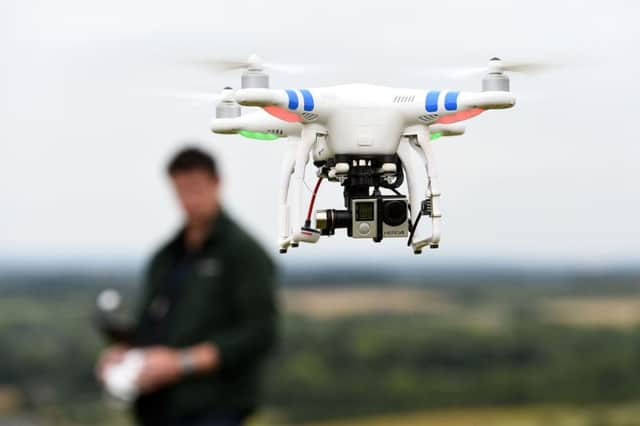Edinburgh postgraduate student pioneers anti-drone technology


David Cormack adapted a compact radar system to track unmanned aerial vehicles (UAVs) at close range.
The innovation could potentially offer improved security to restricted sites at risk of being infiltrated by drone craft.
Advertisement
Hide AdAdvertisement
Hide AdHe is now working with Leonardo, an electrical engineering firm based at Crewe Toll, to further develop his idea before beginning a PhD next month.
David was awarded the Watt Club Medal by his university thanks to the strength of his Masters thesis, which he completed earlier this year.
In it he researched how best to counteract the potential threat of UAV use by criminals or terrorists.
Although radar is generally used to detect flying objects over large volumes of space, it has not yet been widely considered as a primary sensor to detect miniature UAVs, as most radar systems are designed to detect much larger aircraft at very long range.
David has adapted compact radar systems produced by Leonardo to detect very small targets at short range.
Although the technology is still at proof of concept stage, through simple experiments performed in a controlled environment, it is thought that this approach could be highly effective in combating criminal and terrorist activities in the real world. However work continues to develop the technology, as it can be difficult to distinguish between a hobbyist flying in the wrong place and actual live threats.